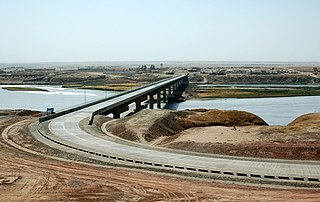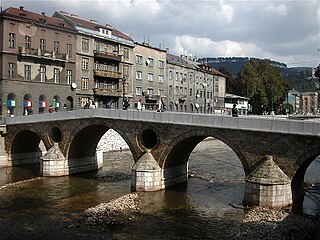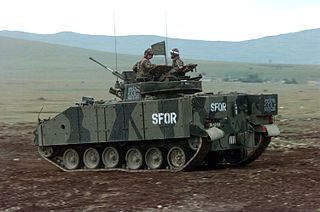The United Nations Mission of Observers in Tajikistan (UNMOT) was a peacekeeping mission established by the United Nations Security Council in December 1994, and its mandate expired in May 2000. Its purpose was to monitor peace agreements during and after the Tajikistan Civil War. The observers were first deployed in the wake of the ceasefire, in 1994, between the ruling government of Tajikistan, led by Emomali Rahmonov, and the United Tajik Opposition. After the UN-sponsored armistice ended the war in 1997, the UN expanded the mission's original mandate to monitor the peace and demobilization. The mission was headquartered in Dushanbe, Tajikistan.

United Nations Security Council resolution 968, adopted unanimously on 16 December 1994, after noting statements by the president of the security council and reports by the Secretary-General Boutros Boutros-Ghali on the situation in Tajikistan, the council established the United Nations Mission of Observers in Tajikistan (UNMOT) and addressed the process of national reconciliation in the country.

United Nations Security Council resolution 999, adopted unanimously on 16 June 1995, after recalling Resolution 968 (1994) on the situation in Tajikistan, the Council extended the mandate of the United Nations Mission of Observers in Tajikistan (UNMOT) until 15 December 1995 and addressed the process of national reconciliation in the country.

United Nations Security Council resolution 1030, adopted unanimously on 14 December 1995, after recalling previous resolutions 968 (1994) and 999 (1995) on the situation in Tajikistan, the Council extended the mandate of the United Nations Mission of Observers in Tajikistan (UNMOT) until 15 June 1996 and addressed the process of national reconciliation in the country.

United Nations Security Council resolution 1061, adopted unanimously on 14 June 1996, after recalling all resolutions on the situation in Tajikistan and the Tajik-Afghan border, the Council extended the mandate of the United Nations Mission of Observers in Tajikistan (UNMOT) until 15 December 1996 and addressed efforts to end the conflict in the country.

United Nations Security Council resolution 1089, adopted unanimously on 13 December 1996, after recalling all resolutions on the situation in Tajikistan and the Tajik-Afghan border, the Council extended the mandate of the United Nations Mission of Observers in Tajikistan (UNMOT) until 15 March 1997 and addressed efforts to end the conflict in the country.

United Nations Security Council resolution 1099, adopted unanimously on 14 March 1997, after recalling all resolutions on the situation in Tajikistan and the Tajik-Afghan border, the Council extended the mandate of the United Nations Mission of Observers in Tajikistan (UNMOT) until 15 June 1997 and addressed efforts to end the conflict in the country.

United Nations Security Council resolution 1113, adopted unanimously on 12 June 1997, after recalling all resolutions on the situation in Tajikistan and the Tajik-Afghan border, the Council extended the mandate of the United Nations Mission of Observers in Tajikistan (UNMOT) for a period of three months until 15 September 1997.

United Nations Security Council resolution 1128, adopted unanimously on 12 September 1997, after recalling all resolutions on the situation in Tajikistan and along the Tajik-Afghan border, the Council extended the mandate of the United Nations Mission of Observers in Tajikistan (UNMOT) for a period of two months until 15 November 1997.

United Nations Security Council resolution 1138, adopted unanimously on 14 November 1997, after recalling all resolutions on the situation in Tajikistan and along the Tajik-Afghan border, the Council expanded and extended the mandate of the United Nations Mission of Observers in Tajikistan (UNMOT) until 15 May 1998.

United Nations Security Council resolution 1167, adopted unanimously on 14 May 1998, after recalling all resolutions on the situation in Tajikistan and along the Tajik-Afghan border, the Council extended the mandate of the United Nations Mission of Observers in Tajikistan (UNMOT) for a further six months until 15 November 1998.

United Nations Security Council resolution 1174, adopted unanimously on 15 June 1998, after recalling resolutions 1031 (1995), 1035 (1995), 1088 (1996), 1103 (1997), 1107 (1997), 1144 (1997) and 1168 (1998), the Council extended the mandate of the United Nations Mission in Bosnia and Herzegovina (UNMIBH) for a period terminating on 21 June 1999 and authorised states participating in the NATO led Stabilisation Force (SFOR) to continue to do so for a further twelve months.

United Nations Security Council resolution 1188, adopted unanimously on 30 July 1998, after recalling previous resolutions on Israel and Lebanon including 501 (1982), 508 (1982), 509 (1982) and 520 (1982) as well as studying the report by the Secretary-General on the United Nations Interim Force in Lebanon (UNIFIL) approved in 426 (1978), the Council decided to extend the mandate of UNIFIL for a further six months until 31 January 1999.

United Nations Security Council resolution 1206, adopted unanimously on 12 November 1998, after recalling all resolutions on the situation in Tajikistan and along the Tajik-Afghan border, the Council extended the mandate of the United Nations Mission of Observers in Tajikistan (UNMOT) for a further six months until 15 May 1999.

United Nations Security Council resolution 1217, adopted unanimously on 22 December 1998, after reaffirming all past resolutions on the situation in Cyprus, the Council extended the mandate of the United Nations Peacekeeping Force in Cyprus (UNFICYP) for a further six months until 30 June 1999.

United Nations Security Council resolution 1251, adopted unanimously on 29 June 1999, after reaffirming all past resolutions on the situation in Cyprus, including resolutions 1217 (1998) and 1218 (1998), the Council extended the mandate of the United Nations Peacekeeping Force in Cyprus (UNFICYP) for a further six months until 15 December 1999.

United Nations Security Council resolution 1273, adopted unanimously on 5 November 1999, after reaffirming resolutions 1234 (1999) and 1258 (1999) on situation in the Democratic Republic of the Congo, the Council extended the deployment of the 90 military liaison personnel as part of efforts to assist the peace process in the country until 15 January 2000.

United Nations Security Council resolution 1274, adopted unanimously on 12 November 1999, after recalling all resolutions on the situation in Tajikistan and along the Tajik-Afghan border, the Council extended the mandate of the United Nations Mission of Observers in Tajikistan (UNMOT) for a further six months until 15 May 2000 and addressed preparations for upcoming parliamentary elections in the country.

United Nations Security Council resolution 1357, adopted unanimously on 21 June 2001, after recalling resolutions 1031 (1995), 1035 (1995), 1088 (1996), 1103 (1997), 1107 (1997), 1144 (1997), 1168 (1998), 1174 (1998), 1184 (1998), 1247 (1999) and 1305 (2000), the council extended the mandate of the United Nations Mission in Bosnia and Herzegovina (UNMIBH) for a period until 21 June 2002 and authorised states participating in the NATO-led Stabilisation Force (SFOR) to continue to do so for a further twelve months.

United Nations Security Council resolution 1423, adopted unanimously on 12 July 2002, after recalling resolutions 1031 (1995), 1035 (1995), 1088 (1996), 1103 (1997), 1107 (1997), 1144 (1997), 1168 (1998), 1174 (1998), 1184 (1998), 1247 (1999), 1305 (2000), 1357 (2001) and 1396 (2002), the Council extended the mandate of the United Nations Mission in Bosnia and Herzegovina (UNMIBH) for a period until on 31 December 2002 and authorised states participating in the NATO-led Stabilisation Force (SFOR) to continue to do so for a further twelve months.

















